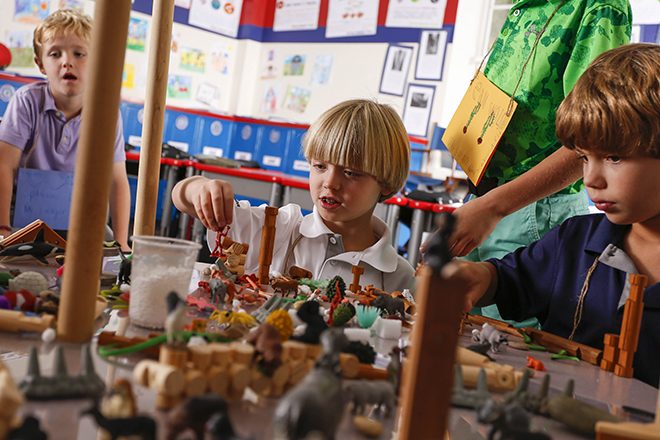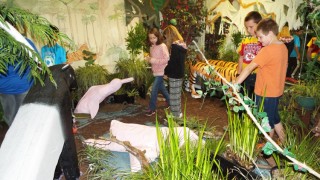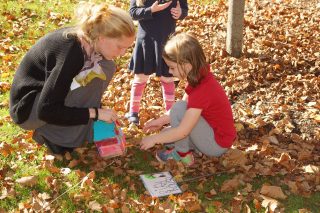“How much does a lion cost?” “Should we build a lemonade stand or a T-shirt shop?” “What animals can we put in our water habitat?” “What can we do about the oil spill?” These are questions overheard during a session of Zoolandia, a game in which wild ideas are OK!
For the past four years, PDS second graders have enjoyed Zoolandia, a game-based learning simulation that encompasses all aspects of animals, their habitats, and environmental effects on living things.
Student zookeepers design habitats, research animals, and develop strategies to attract visitors. There is intense buying and selling of animals and zoo supplies. Gamers are given specific roles in a world where they are buying, selling, trading, and spending virtual money to develop their habitat areas. With a goal of opening and operating a zoo, they must stay on budget, too.
Zoolandia allows students to learn through gaming — something that continues to improve education for boys. Gamification is an innovative educational approach that motivates students to learn by using game design and game elements in the classroom and beyond. The goal is to maximize engagement by capturing students’ interest and inspiring them to continue learning. Zoolandia involves collaboration, inspiration, innovation, and design thinking.
Beginning with a blank game board, four small groups design and create a water habitat, a desert habitat, a forest habitat, and a grassland habitat over a 10-week period that includes investigation, research, and labs outside of the game days. Boys are tasked with roles such as habitat zookeeper, habitat specialist, and treasurer. Other class members serve as members of animal supply and sales teams. One student is charged with the role of Dr. Doolittle, who settles disputes, announces the daily weather, and calculates the zoo’s daily earnings based on attendance and concession sales. Zoolandia participants celebrate with a grand opening ceremony.
Great schools incorporate games!



